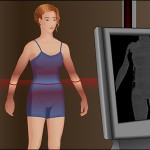Online presence could contribute to Big Data
Monday, I was mindful about the way I interacted online socially and financially through electronic devices.
I watched two episodes of “New Girl” on Netflix before starting in on my task for the day: figuring out what I’ll be doing about my lease and future roommates.
I messaged two girls on Facebook that have already expressed interest in the apartment complex where I currently reside and shared the complex’s website and pictures with them. I have no idea if Facebook now has rights to these images or if by linking to a leasing page, the web service will somehow use that information to give me ads about other apartments in the future or make note of it.
I then logged on to my apartment’s webpage to renew my lease online. By agreeing to virtually sign a lease online, I made a legal commitment to follow through with another lease and its payments. The apartment’s web service already had my parent’s financial information on file as well as my legal information because I already had a lease with this complex. I wouldn’t agree to sign a lease online if I hadn’t already completed one before in-person where I had to provide my driver’s license, proof of insurance, and other documents.
I used Snapchat to communicate with my friend that lives in Egypt to confirm plans for her visit to Raleigh this upcoming weekend. I also googled the weather here and in Egypt for the upcoming week and while browsing later online, saw suggestions for travel books show up when I logged on to Amazon.
My contributions online can divulge information that’s more telling about myself than I realized. For example, my apartment complex rents primarily to students so my presence on their website and mentioning it on Facebook could show that I am a college student. The fact that I agreed to sign my lease online may be information contributed to a database tallying a number of online leases being signed and whether that is a growing transition away from hard-copy leases and other legal documents. My Netflix choices could divulge my gender and my Google searches can be a way for online shopping websites to collect information and a “profile” of products I’m most likely to purchase.
Is the integrity of my “virtual signature” something that could be accessible by a third-party or used in other ways from what I intend in the future? Will the conversations I have online be used for collecting data about me and my friends?
 Next Post
Next Post
I am always skeptical of using my “electronic signature.” I am concerned that once I fill in the information once and submit it for one signature, it is easily replicated by that company. I, too, signed my apartment lease online, much to my disdain. I spent the whole time thinking about the fact that, after I had to sign 16 pages electronically, it would be simple for the leasing company to copy that signature to a 17th page, forcing me into something I didn’t agree to. In court, though, it would look like I signed it. I assume that there are safety precautions to avoid this, but unlike pop-up blockers and virus scanners, we are already giving information and rights to the company, just only to an extent. Selling it to a third party would be even more terrifying, yet sometimes, we do not have a choice on how we sign these things. What if auto-fill picks up on our electronic signature? Could that lead to more accidental issues from us just being students needing a place to live?
First off, you have a friend in Egypt? That’s so cool.
More to the point, the fact that you can communicate with someone across the world is just one of the amazing things that technology allows us to do, but (and I think we may have discussed this in class in more detail) having stuff traveling between countries gives even more organizations access to your data than most people tend to realize. It just goes to show how careful we have to be with what we share, even over something as innocuous as Snapchat.
The question of the digital signature is interesting because I’m not sure exactly how secure the analog signature is by comparison. It doesn’t seem that using a pen to forge someone else’s signature would be extremely difficult, and most signatures probably aren’t going to be scrutinized unless some reason comes up to do so anyway.
Depending on the platform you use for chat, it’s probably already being mined for data.